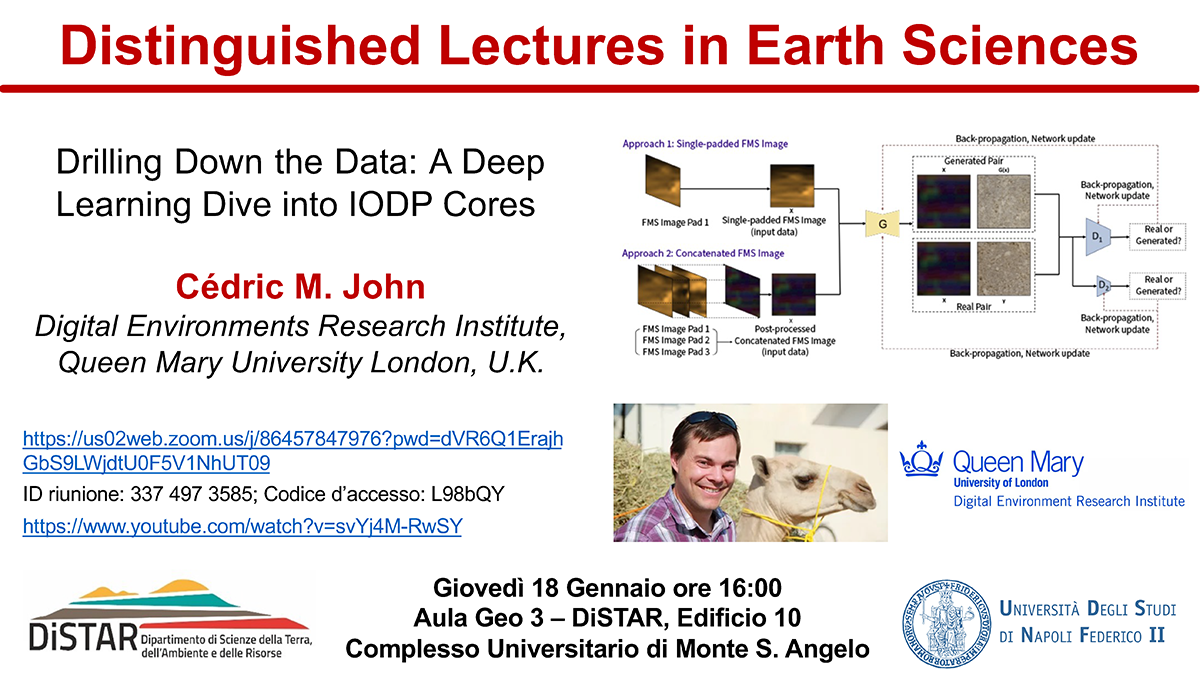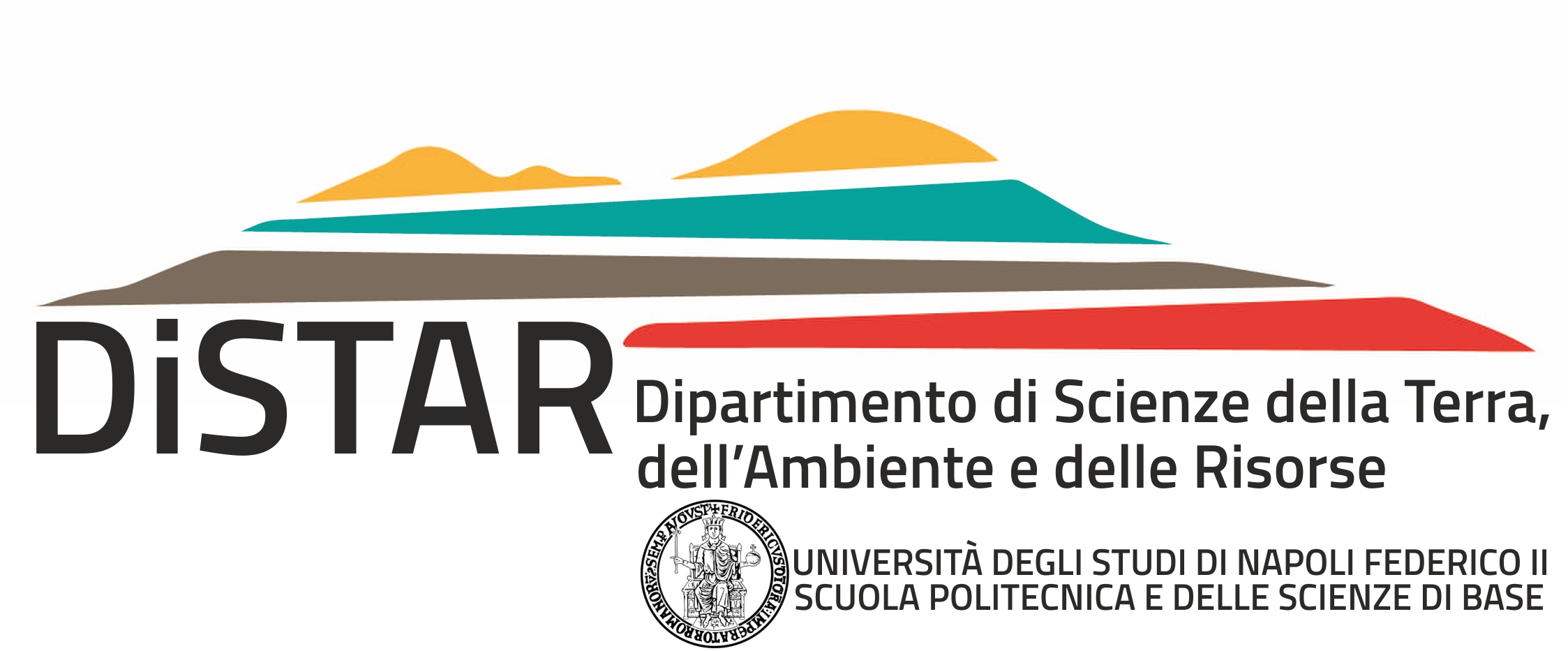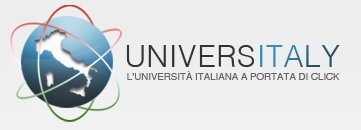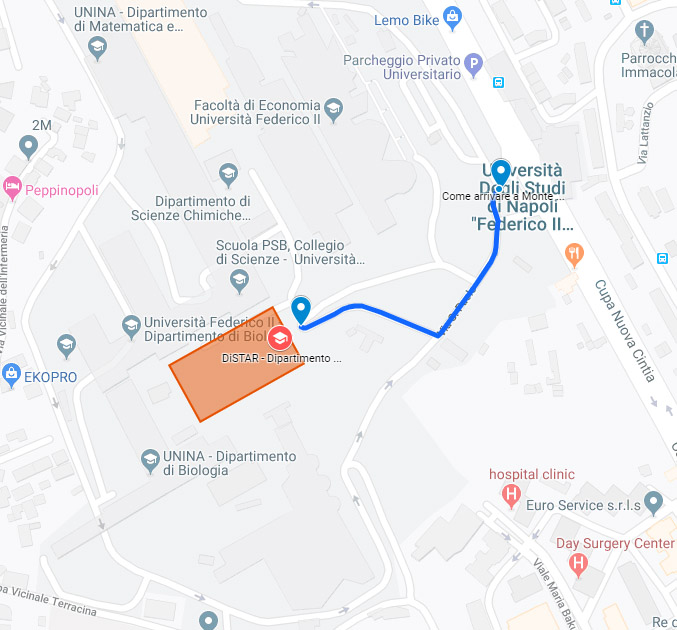Distinguished Lectures in Earth Sciences
Drilling Down the Data: A Deep Learning Dive into IODP Cores
Cédric M. John, Digital Environments Research Institute, Queen Mary University London, U.K.
Email:

Abstract:
The Integrated Ocean Drilling Program (IODP) stands as a testament to human curiosity, having amassed a diverse collection of drilling cores which provide a window into geological processes. Core data is pivotal for understanding our planet’s past, present, and future. Despite this richness, extracting meaningful insights from core description poses significant challenges due to the inherent complexity and variability of the data, the amount of existing material, and the subjectivity of the interpreter.
Focusing largely (but not exclusively) on carbonate rocks, characterized by their heterogeneity at all observational scales, I will discuss how my research group and I have pioneered the application of deep-learning computer vision to geological core interpretation. This technology transcends the traditional, tedious manual interpretations of cores, offering a rapid, and often more accurate, alternative for delineating depositional environments and sequence stratigraphy. Convolutional neural networks (CNNs) form the backbone of our approach, enabling us to process core data with unprecedented efficiency. I will show that these sophisticated models, when correctly trained and fed with substantial datasets, serve as invaluable tools for geologists, outpacing conventional methods in speed without compromising on precision.
Our early work was centred on transfer learning, an AI approach that adapts pre-existing models to new data. I will show that this remains one of the best way to train classification algorithms for geological dataset. But we also worked on generative algorithms that fill gaps in our sampling of core imagery: for instance, we use Generative Adversarial Networks (GANs) to transform the resistivity images from formation micro scanners into representations mirroring actual core photographs, thus enhancing the interpretability for geologists irrespective of their background in downhole tools.
We tackle the often-limiting factor of dataset size in two ways. First, we recourse to generative AI to oversample our training set. Second, we also explore semi-supervised learning techniques. I will demonstrate that we successfully train models on core deformation images from IODP with minimal labelled data, achieving accuracy on par with, if not exceeding, that of transfer learning models.
The arc of my talk will thus chart the course of deep learning's evolution from a mere auxiliary tool to a pivotal force in geological sciences. Results from my research group and the broader research community indicate a promising future where deep learning not only streamlines the interpretation process but also provides robust, systematic insights that could revolutionize our understanding of geological data.
Professor Cédric M. John holds the position of head of Data Science and the Environment at the Digital Environments Research Institute (DERI) at Queen Mary University of London. He began his academic path with a diploma in Geology from the University of Neuchâtel in Switzerland in 1999, followed by a doctorate from Potsdam University in Germany in 2003. His involvement with the IODP program, previously ODP, commenced around this time when he joined ODP Leg 194 as a sedimentologist.
Post-PhD, Cédric undertook a postdoctoral fellowship at UC Santa Cruz from 2004 to 2005, then served as a staff scientist with the USIO in College Station, Texas, until 2006. He transitioned to academia in June 2006 as a lecturer at the Department of Earth Science and Engineering, later advancing to Senior Lecturer in 2011, and to Reader in Earth-Centric AI in 2018. He assumed his professorship at DERI in January 2024.
His research is characterized by its breadth, encompassing carbonate systems, field geology, geochemistry, alongside computational methods, and data science. For more information on Professor John's research and his team's work, please visit www.john-lab.org.






